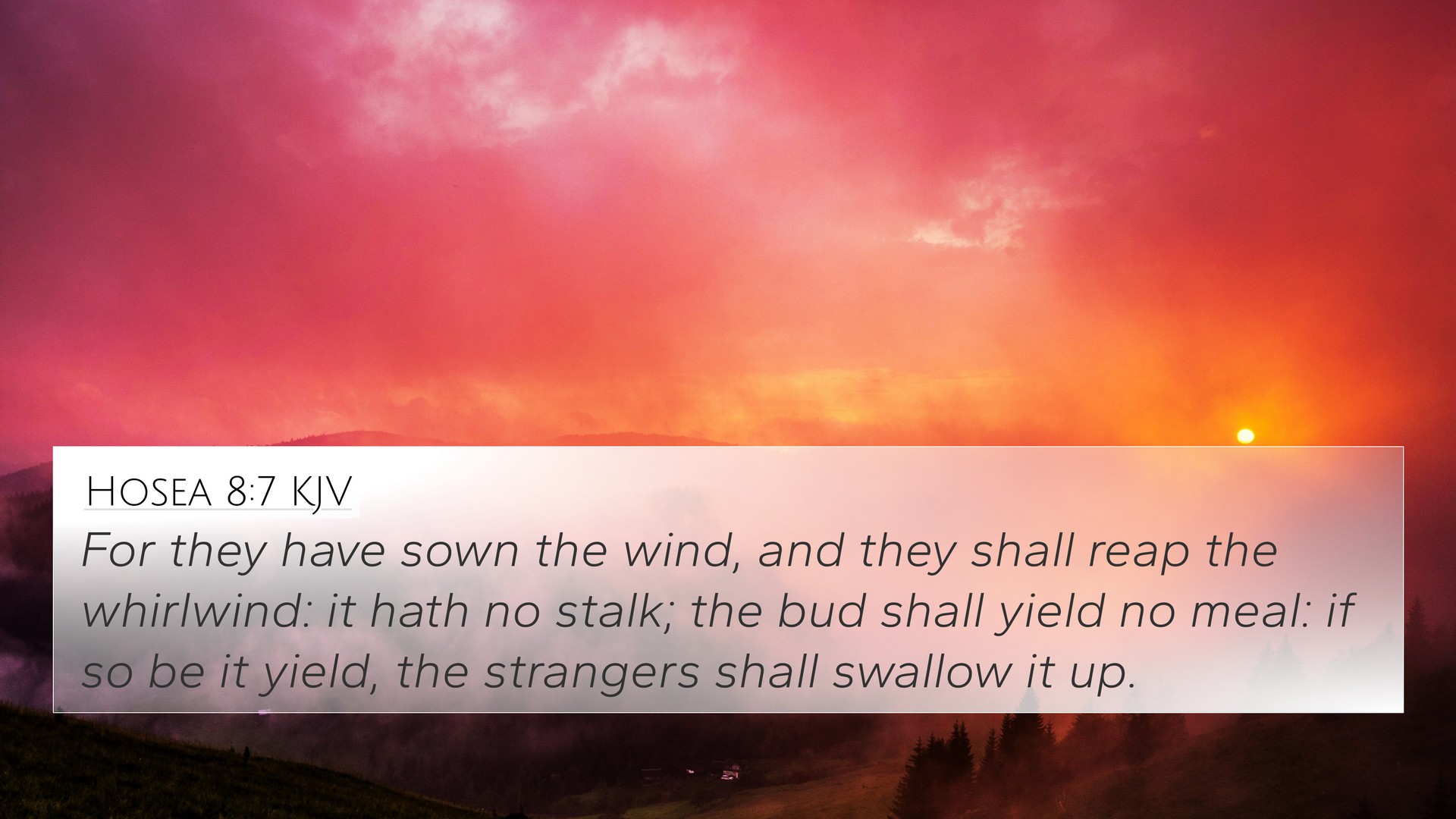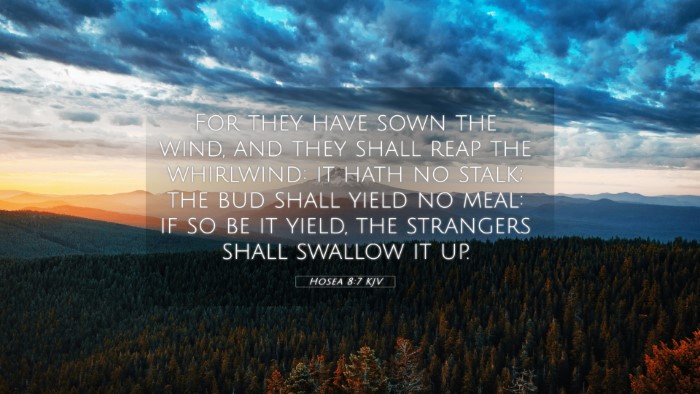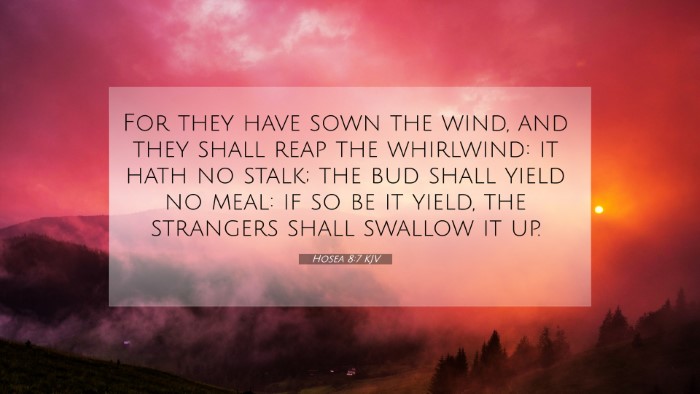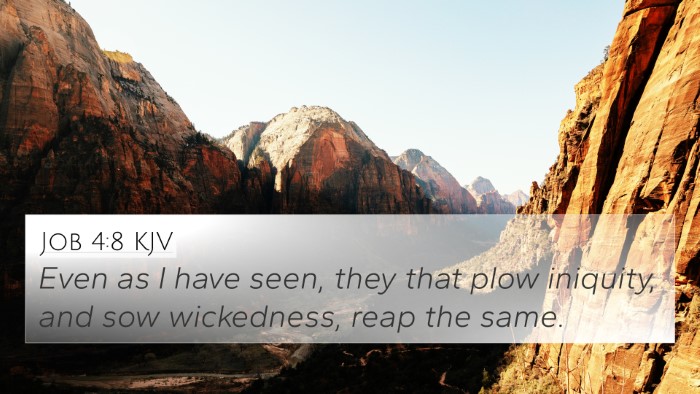Old Testament
Genesis Exodus Leviticus Numbers Deuteronomy Joshua Judges Ruth 1 Samuel 2 Samuel 1 Kings 2 Kings 1 Chronicles 2 Chronicles Ezra Nehemiah Esther Job Psalms Proverbs Ecclesiastes Song of Solomon Isaiah Jeremiah Lamentations Ezekiel Daniel Hosea Joel Amos Obadiah Jonah Micah Nahum Habakkuk Zephaniah Haggai Zechariah MalachiHosea 8:7 Similar Verses
Hosea 8:7 Cross References
For they have sown the wind, and they shall reap the whirlwind: it hath no stalk; the bud shall yield no meal: if so be it yield, the strangers shall swallow it up.
Uncover the Rich Themes and Topics of This Bible Verse
Listed below are the Bible themes associated with Hosea 8:7. We invite you to explore each theme to gain deeper insights into the Scriptures.
Hosea 8:7 Cross Reference Verses
This section features a detailed cross-reference designed to enrich your understanding of the Scriptures. Below, you will find carefully selected verses that echo the themes and teachings related to Hosea 8:7 KJV. Click on any image to explore detailed analyses of related Bible verses and uncover deeper theological insights.
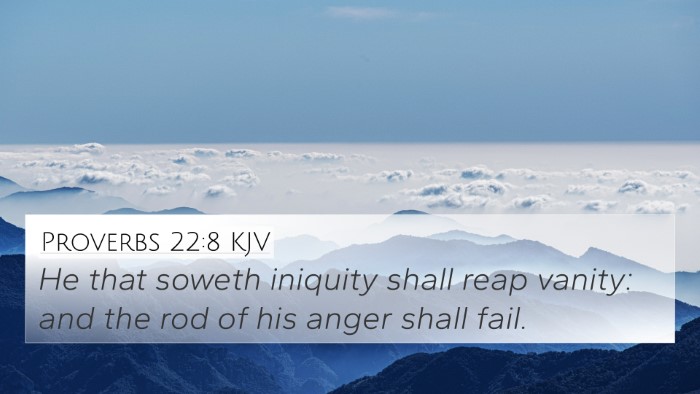
Proverbs 22:8 (KJV) »
He that soweth iniquity shall reap vanity: and the rod of his anger shall fail.
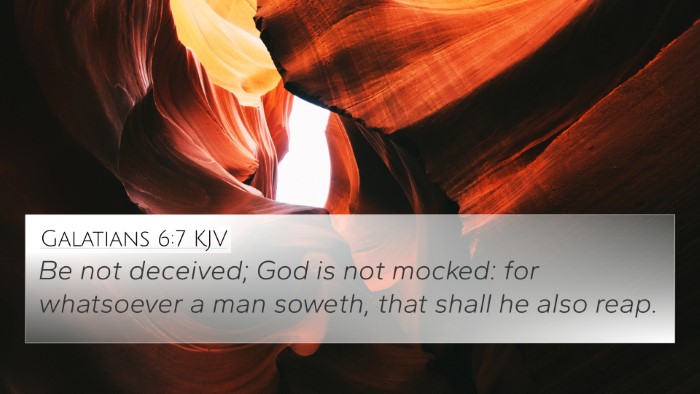
Galatians 6:7 (KJV) »
Be not deceived; God is not mocked: for whatsoever a man soweth, that shall he also reap.
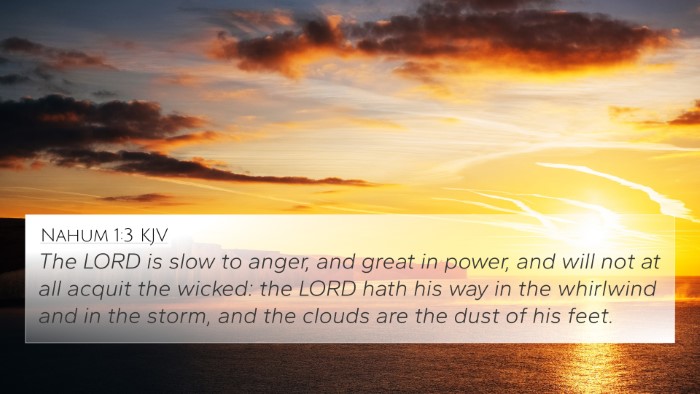
Nahum 1:3 (KJV) »
The LORD is slow to anger, and great in power, and will not at all acquit the wicked: the LORD hath his way in the whirlwind and in the storm, and the clouds are the dust of his feet.
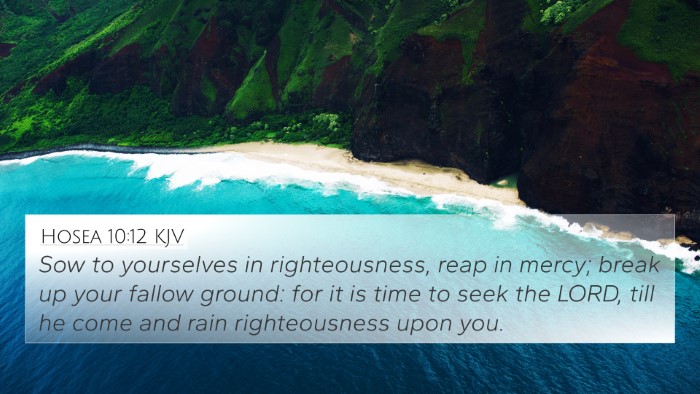
Hosea 10:12 (KJV) »
Sow to yourselves in righteousness, reap in mercy; break up your fallow ground: for it is time to seek the LORD, till he come and rain righteousness upon you.
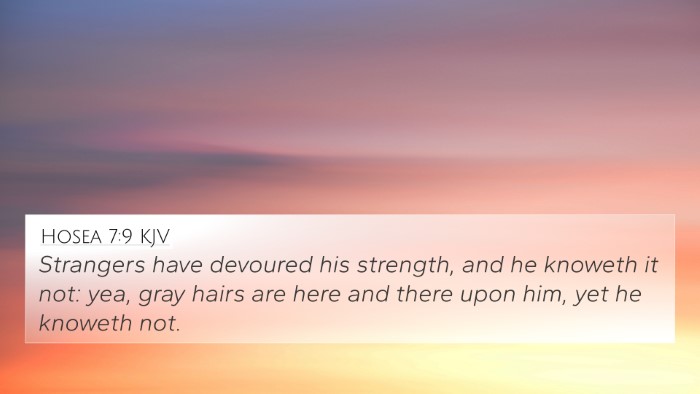
Hosea 7:9 (KJV) »
Strangers have devoured his strength, and he knoweth it not: yea, gray hairs are here and there upon him, yet he knoweth not.
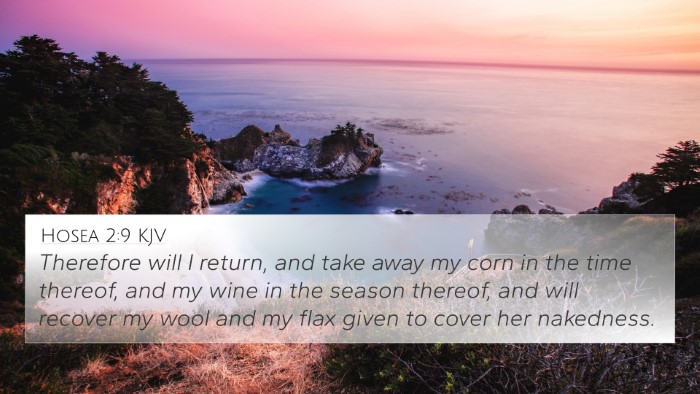
Hosea 2:9 (KJV) »
Therefore will I return, and take away my corn in the time thereof, and my wine in the season thereof, and will recover my wool and my flax given to cover her nakedness.
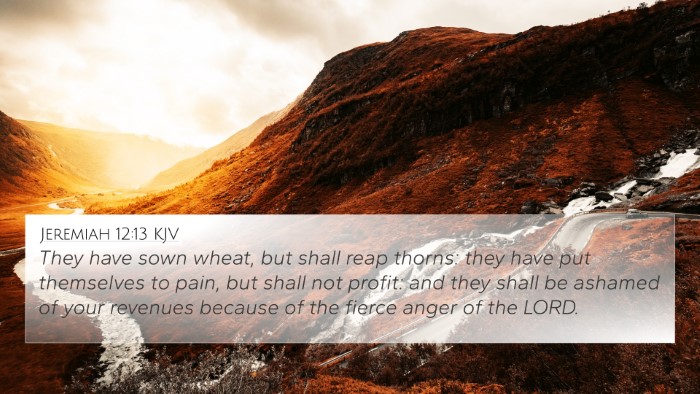
Jeremiah 12:13 (KJV) »
They have sown wheat, but shall reap thorns: they have put themselves to pain, but shall not profit: and they shall be ashamed of your revenues because of the fierce anger of the LORD.
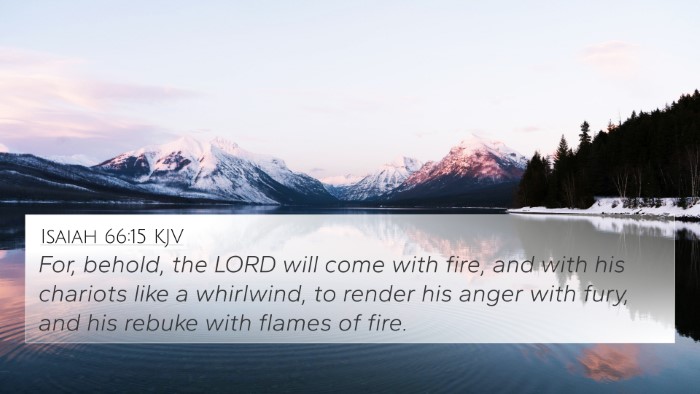
Isaiah 66:15 (KJV) »
For, behold, the LORD will come with fire, and with his chariots like a whirlwind, to render his anger with fury, and his rebuke with flames of fire.
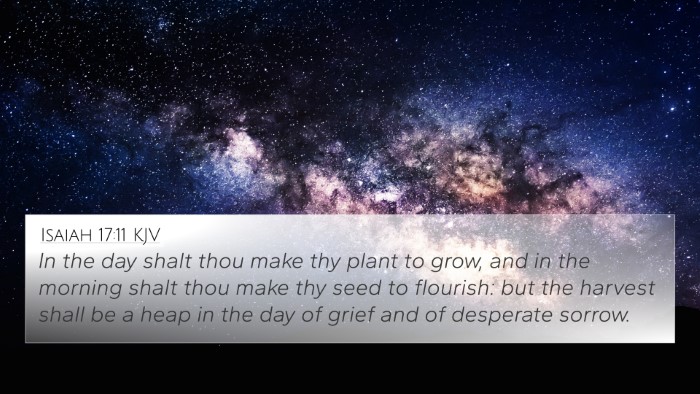
Isaiah 17:11 (KJV) »
In the day shalt thou make thy plant to grow, and in the morning shalt thou make thy seed to flourish: but the harvest shall be a heap in the day of grief and of desperate sorrow.
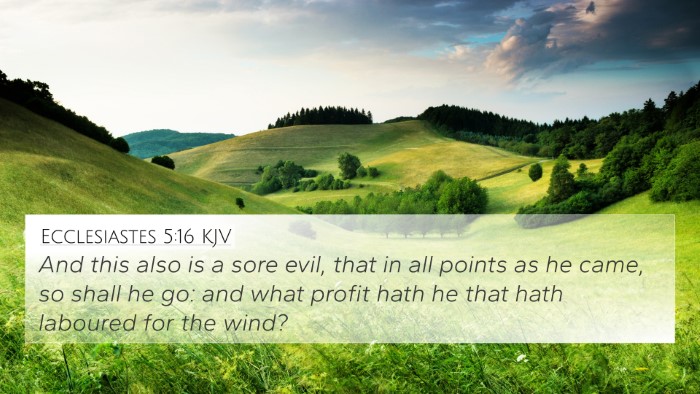
Ecclesiastes 5:16 (KJV) »
And this also is a sore evil, that in all points as he came, so shall he go: and what profit hath he that hath laboured for the wind?
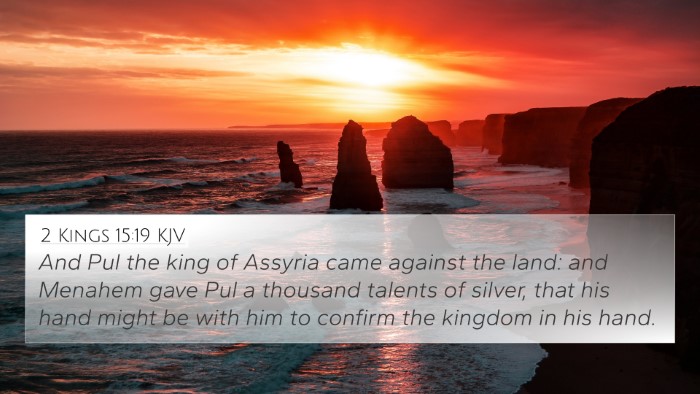
2 Kings 15:19 (KJV) »
And Pul the king of Assyria came against the land: and Menahem gave Pul a thousand talents of silver, that his hand might be with him to confirm the kingdom in his hand.
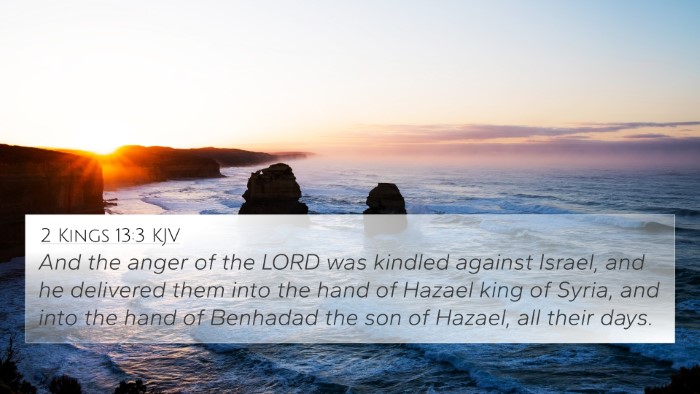
2 Kings 13:3 (KJV) »
And the anger of the LORD was kindled against Israel, and he delivered them into the hand of Hazael king of Syria, and into the hand of Benhadad the son of Hazael, all their days.
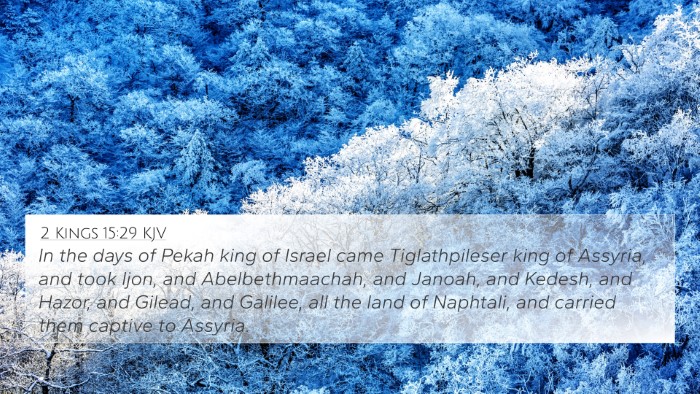
2 Kings 15:29 (KJV) »
In the days of Pekah king of Israel came Tiglathpileser king of Assyria, and took Ijon, and Abelbethmaachah, and Janoah, and Kedesh, and Hazor, and Gilead, and Galilee, all the land of Naphtali, and carried them captive to Assyria.
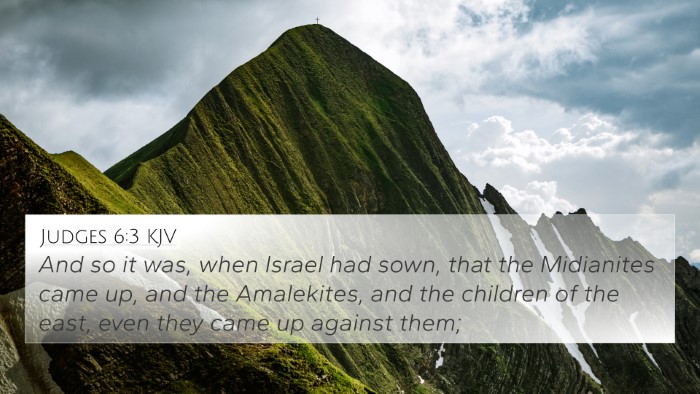
Judges 6:3 (KJV) »
And so it was, when Israel had sown, that the Midianites came up, and the Amalekites, and the children of the east, even they came up against them;
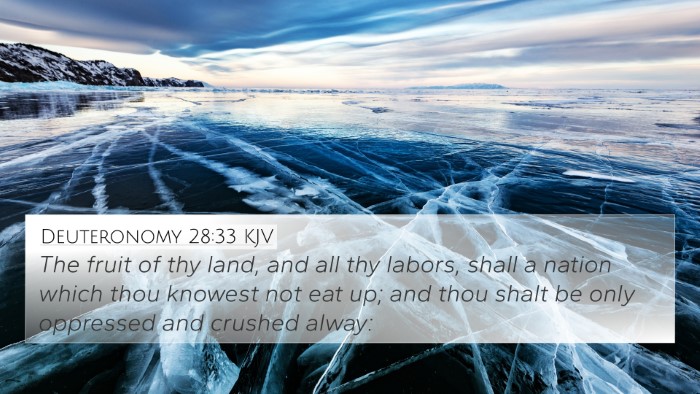
Deuteronomy 28:33 (KJV) »
The fruit of thy land, and all thy labors, shall a nation which thou knowest not eat up; and thou shalt be only oppressed and crushed alway:
Hosea 8:7 Verse Analysis and Similar Verses
Understanding Hosea 8:7
The verse Hosea 8:7 states: "For they have sown the wind, and they shall reap the whirlwind." This powerful statement encapsulates the core Biblical principle of sowing and reaping, highlighting the consequences of one’s actions. The following sections summarize interpretations and insights from various public domain commentaries.
Verse Meaning
The phrase "sown the wind" symbolizes acts of futility and meaningless pursuits. The people of Israel are depicted as engaging in actions that lack substance and will ultimately lead to dire repercussions. The idea of reaping "the whirlwind" indicates a much greater outcome, emphasizing that a seemingly small or insignificant action can lead to catastrophic consequences. This principle is foundational in understanding God’s justice and the inevitability of divine retribution.
Commentary Insights
- Matthew Henry: Henry elaborates that the Israelites’ trust in their own strength and their reliance on foreign alliances for security proved to be illusory. Instead of looking to God for help, they engaged in activities that were spiritually bankrupt. Consequently, their desires led to self-destruction, and their folly bears the weight of judgment.
- Albert Barnes: Barnes emphasizes that the metaphor of sowing the wind signifies actions that are void of divine blessing. He explains that they were involved in idolatry and had deviated from God’s ways, rejecting His guidance. The result of their sowing is akin to reaping a storm that is far beyond their control—symbolizing devastation and ruin.
- Adam Clarke: Clarke posits that the Israelites’ pursuits are not only futile but are also a mockery of divine order. Their choices led them into a tragic cycle of disobedience and destruction. Clarke also notes the prophetic nature of this verse, indicating that it serves as both a warning and a promise of impending judgment.
Biblical Cross-References
Hosea 8:7 resonates deeply with various other scriptures, illustrating an interconnectedness within the Bible. Below are some relevant cross-references that enhance the understanding of this verse:
- Galatians 6:7 - "Do not be deceived: God is not mocked, for whatever one sows, that will he also reap."
- Proverbs 22:8 - "Whoever sows injustice will reap calamity, and the rod of his fury will fail."
- Job 4:8 - "As I have seen, those who plow iniquity and sow trouble reap the same."
- Isaiah 57:21 - "There is no peace, says my God, for the wicked."
- Proverbs 1:31 - "Therefore they shall eat the fruit of their way, and have their fill of their own devices."
- Jeremiah 12:13 - "They have sown wheat and have reaped thorns; they have tired themselves out but profit nothing."
- Matthew 7:16 - "You will recognize them by their fruits. Are grapes gathered from thornbushes, or figs from thistles?"
Connections Between Bible Verses
The connections between Hosea 8:7 and these cross-referenced verses show a pattern of divine truth throughout the scriptures regarding the law of sowing and reaping. It acts as a reminder that one’s actions have consequences, which is a key theme throughout both the Old and New Testaments. This principle not only holds for individuals but can be observed in the broader narrative of nations and communities within scripture.
Thematic Bible Verse Connections
The thematic connections evident in Hosea 8:7 encourage believers to reflect on their choices and the potential fallout that may arise from actions that do not align with God's will. The reciprocal relationship between one's spiritual pursuits and their outcomes emphasizes the importance of faithful living, reliance on God, and adherence to His commandments.
Cross-Referencing Tools and Resources
To further explore the themes and implications of Hosea 8:7, one can utilize various tools for Bible cross-referencing. A bible concordance provides a systematic way to find related verses, aiding in understanding the rich tapestry of biblical text. If you're interested in comprehensive Bible cross-reference materials or guides, consider utilizing a bible cross-reference system to delve deeper into similar themes.
Cross-Reference Study Methods
Employing effective cross-referencing Bible study methods helps uncover Layered meanings within the text. For example, connect themes of justice, punishment, and mercy found across various books, enriching the study experience. Personal reflection on passages, characterized by consistent prayer and meditation, will assist in discovering deeper insights into God’s character and His dealings with humanity.
Conclusion
Hosea 8:7 serves not only as a warning but as a foundational text that encapsulates a life principle recognized in the scriptural narrative. By exploring the relationships between this verse and others, believers are encouraged to pursue a life rooted in righteousness and to understand the profound repercussions of their choices. God's truth remains evident across the ages, and understanding these connections fosters a mature and informed faith.
